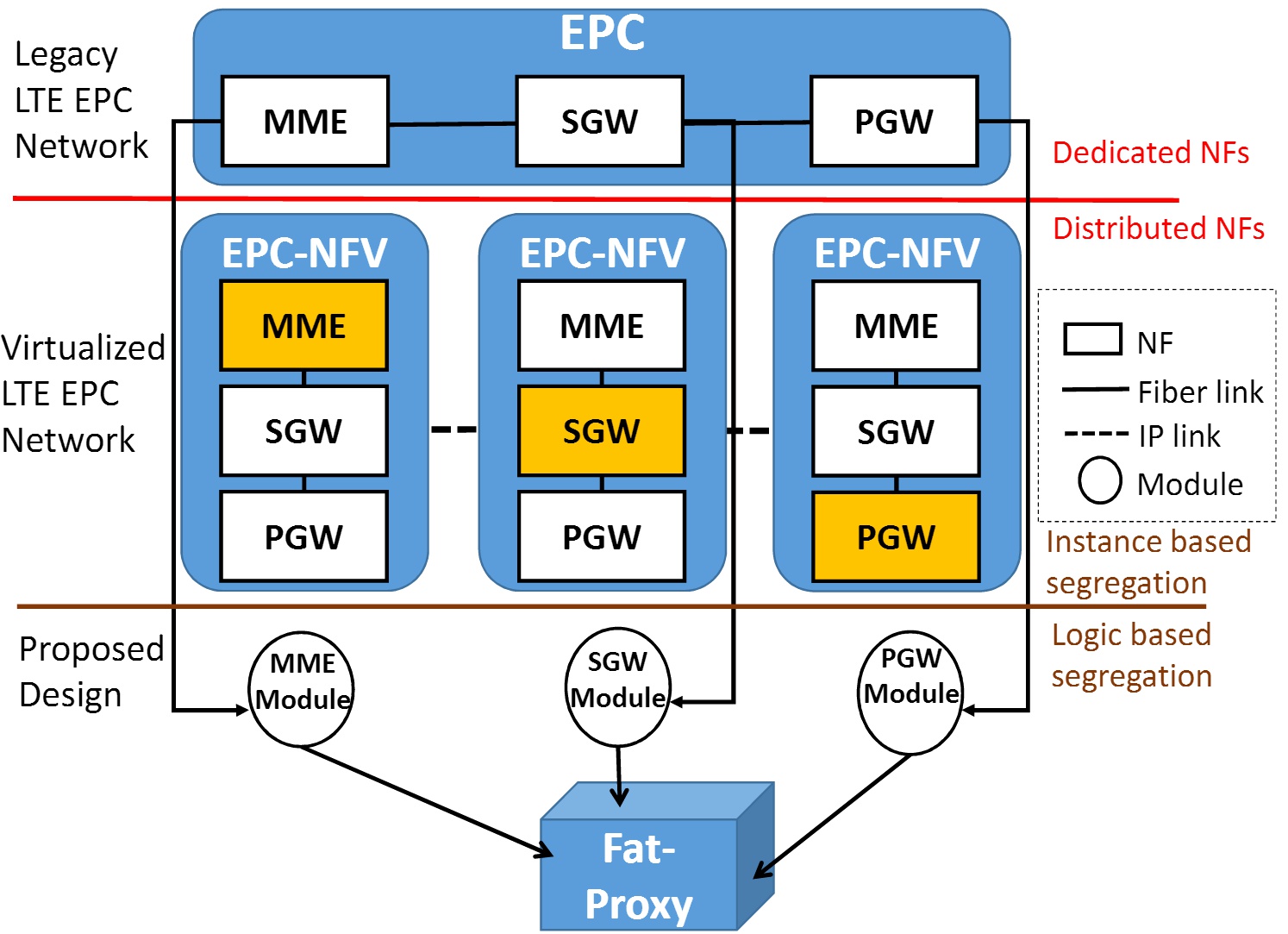Network Function Virtualization in Mobile Network
Rethinking NFV in LTE and Beyond: Reliable, Scalable and Fault Tolerant NFV designs in 4G LTE and 5G arena.

Overview
LTE Network Function Virtualization (LTE-NFV) scales user services in a low cost fashion by transforming the centralized legacy LTE Core architecture to a distributed architecture. This distributed architecture makes multiple instances of LTE Network Functions (NFs) and virtualizes them on commodity data-center network. The functionality of LTE-NFV architecture breaks however, since the distributed NF instances connected via unreliable IP links delay the execution of critical events. The failure of time-critical events results in users’ quality of service degradation and temporary service unavailability. We propose a new way to virtualize LTE core network. We argue that logic-based NFs segregation should be done for NFV, instead of instance-based NFs segregation done in current NFV implementation. Our approach of ‘logic-based NFs segregation’ combines the logic of an event into a single NF, thus localizing the execution of critical events to one virtual machine. This way, only the localized entities exchange signalling messages, and the events do not experience large delays. We further reduce the delays by exploiting the parallelism in LTE network protocols; and partition these protocols such that their signalling messages run in parallel. In addition, we eliminate unnecessary messages to reduce the signalling overhead.
Publications
| Rethinking LTE Network Functions Virtualization IEEE ICNP'17 Muhammad Taqi Raza, Dongho Kim , Kyu-Han Kim , Songwu Lu and Mario Gerla |
| Reducing Latencies and Improving Fault Tolerance in NFV of 3GPP Standardized IMS ACM/IEEE CNSM'17 Muhammad Taqi Raza and Songwu Lu |
| Modular Redundancy for Cloud based IMS Robustness ACM Mobiwac'17 Muhammad Taqi Raza, Hsiao-Yun Tseng, ChangLong Li and Songwu Lu |
Team Member
- Muhammad Taqi Raza (University of California, Los Angeles)
- Songwu Lu (University of California, Los Angeles)
- Kyu-Han Kim (Hewlett-Packard Laboratories, Palo Alto)
Research Support
We gratefully acknowledge research support from NSF (CNS-1526985, CNS-1526456, CNS-1423576 and CNS- 1421440) and the departmental support from UCLA. We thank HP Labs for providing internship oppertunities to further our research.


